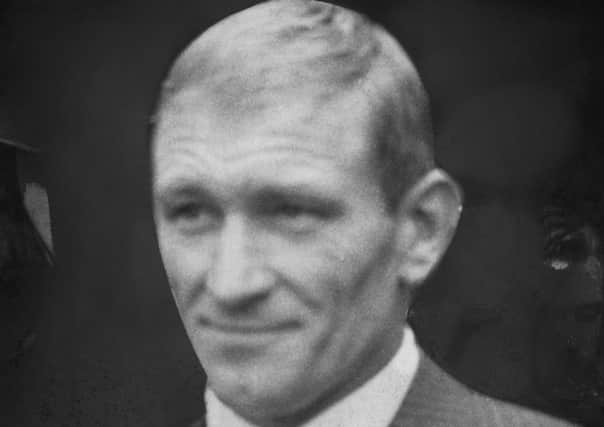Obituary: Gordon Goody, Great Train Robber and bar owner


Gordon Goody was one of the last remaining members of the infamous “Great Train Robbery” gang, and mastermind behind what was popularly described as the “crime of the century” - the 1963 theft of £2,631,684, about £48.5m today, from the Glasgow to Euston overnight mail train.
For his role in the heist he received 30 years, with the other 11 captured members receiving a cumulative 290 years, but he only served 12 after a change in the law. He spent the last 36 years living quietly in southern Spain running a bar, the Kon Tiki, although he admitted the odd foray into criminality.
Advertisement
Hide AdAdvertisement
Hide AdHe believed his sentence was particularly severe because he lived a “colourful” life of crime, but more importantly had embarrassed the Flying Squad, evading earlier convictions and walking free.
“I had got away with the perfect crime,” he reminisced. “The cops couldn’t prove it was me so they fitted me up. I’m not saying I was an innocent man being fitted up - I was a guilty man doing his best not to get fitted up, but they were determined to get me and they did.”
Dubbed by the media as the “quiet man,” Goody kept a low profile and was tight-lipped over the crime that captured the public’s imagination, while the former gang leader Bruce Reynolds courted the media and, perhaps the best known accomplice, Ronnie Biggs grabbed headlines after breaking out and spending 30 years evading capture until 2001. Goody later said, “Biggsy was an ar*ehole. I didn’t like him, no-one did.”
Born in Putney in 1930, Douglas Gordon Goody was brought up in a law-abiding family briefly living in London before moving to rural Co Tyrone. His introduction to crime came when he began smuggling cattle over the Northern Irish border.
He returned to London after the Blitz and soon found himself on the wrong side of the law after mugging a gay man, for which he received 12 strokes of the birch. He later admitted that it was “not a part of my life that I’m proud of”.
After completing his National Service with the Royal Artillery where he learnt about explosives, Goody found himself in and out of prison. While working as a cabin steward with P&O, he was involved in a series of burglaries which led to three years in prison. There he met a safe cracker and three days after his release, the pair blew a safe at a Chiswick dairy escaping with £1,900.
Goody began living the high life with the proceeds from his jobs; he bought a hair salon in Fulham, bought bespoke clothing from Saville Row, wore a Rolex and drove a Jaguar. However, to maintain this life style he had to take on bigger jobs.On the night of 8 August 1963, a diesel locomotive was stopped as it passed through the Buckinghamshire countryside close to Cheddington and driven a mile-and-a-half to Bridego Bridge, where the 15-strong gang took 30 minutes to unload £2.6m in used notes. During the audacious raid, the train’s driver Jack Mills was struck over the head with an iron bar and suffered serious injuries and never worked again. Although he recovered, he died in 1970 aged 64 from an illness unrelated to the robbery. His family maintained that he remained traumatised by the attack.
At his trial, Goody was sentenc ed to 30 years but was released in 1976 and moved to Mojácar, Spain, four years later where he bought a house, a bar and became a much-loved resident, living comfortably with his partner Maria with whom he had a daughter. He said that although she was proud of him, he had made his grandson a bedroom poster which read, “Don’t ever try to imitate your grandad”.
Like most of the gang, Goody saw little of his loot, claiming most had gone on court expenses.